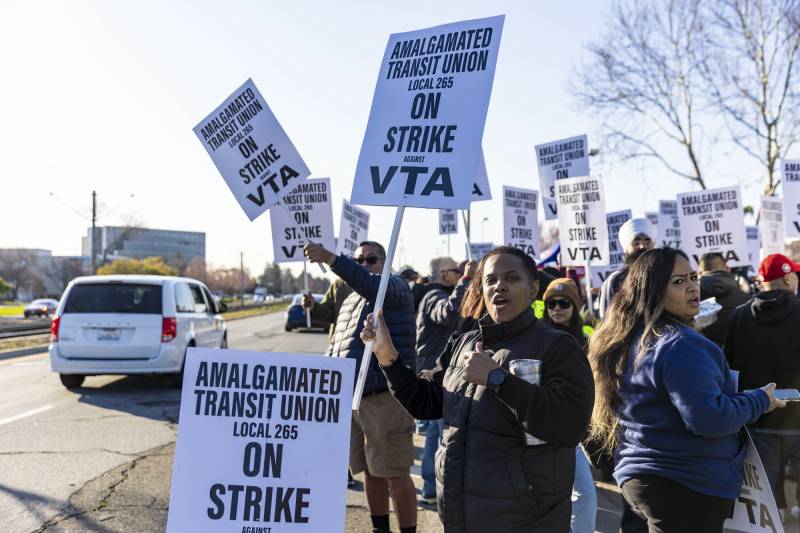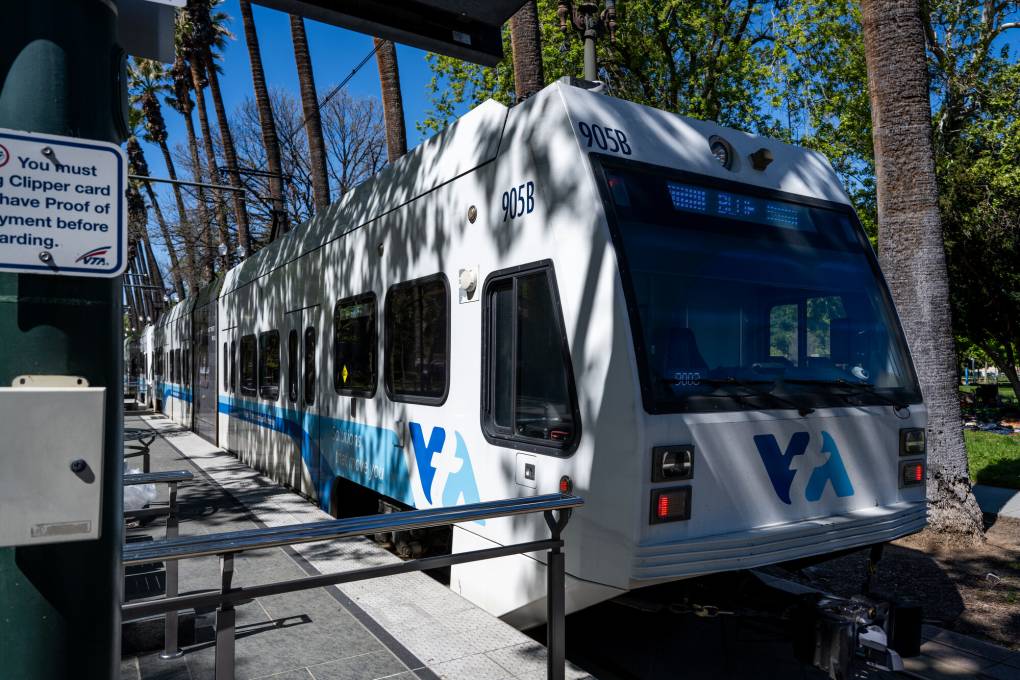As South Bay transit workers continue a historic strike for a second day over stalled contract talks, halting bus and train service in the region, the agency that employs them is suing to force them back to work.
The Santa Clara Valley Transportation Authority filed a complaint late Monday night against the Amalgamated Transit Union Local 265, alleging the strike is a breach of contract and an act of bad faith.
“This abrupt disruption in service has created substantial uncertainty for VTA’s tens of thousands of daily riders and other members of the public who rely on VTA to transport their employees, students, and loved ones throughout the county and beyond,” reads the complaint filed in Santa Clara County Superior Court.


